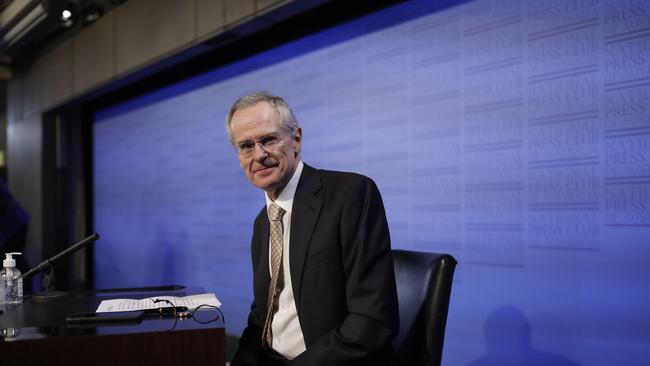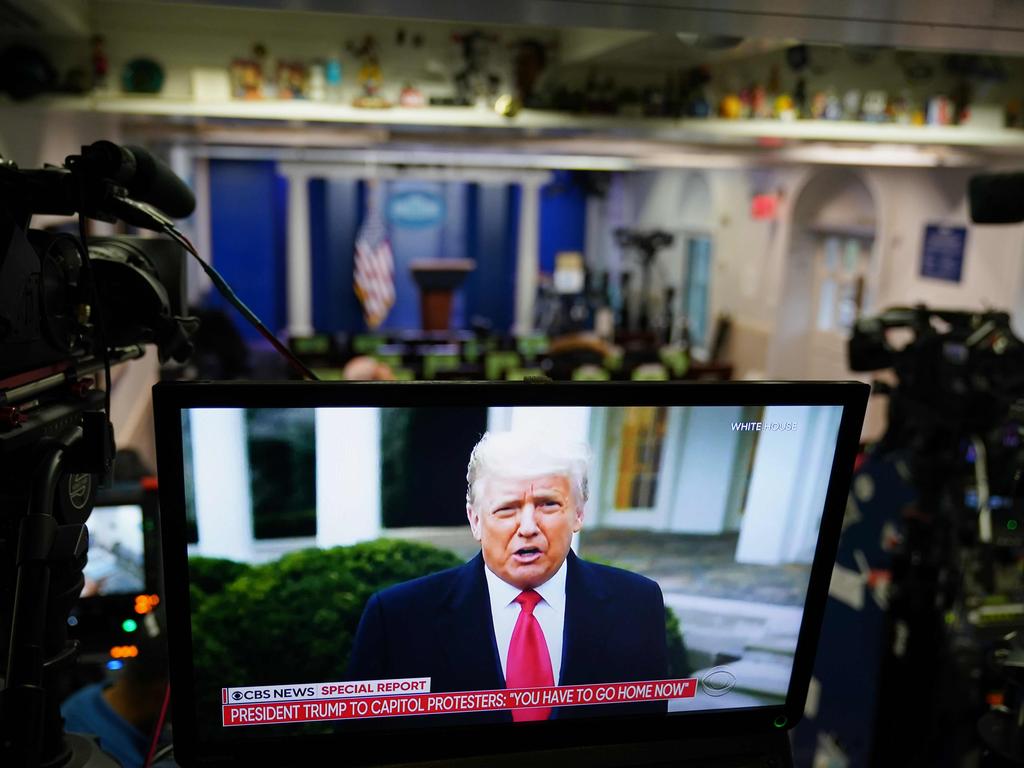Google search buries Australian news sites in ‘experiment’
Google is burying links from traditional media outlets, in a dramatic escalation of a dispute with mainstream publishers.

Google is burying links from traditional media outlets in some of its search results, in a dramatic escalation of an ongoing dispute between mainstream publishers and the tech giant.
The company said in a statement that the move was part of a “short-term experiment”. It means that for some users, news stories from commercial media outlets, including The Australian, are being hidden by the company’s algorithms.
“Every year we conduct tens of thousands of experiments in Google Search. We’re currently running a few experiments that will each reach about 1 per cent of Google Search users in Australia to measure the impacts of news businesses and Google Search on each other,” a Google spokesman said.
“In 2018, the value we provided to publishers through referral traffic alone was estimated at $218m. These experiments will conclude by early February.
“As we said last week, we remain committed to getting to a workable code and look forward to working with the Senate committee, policymakers and publishers to achieve an outcome that’s fair for everyone, in the interests of all Australians.”
Google’s experiments come amid a bitter fight between it, Facebook and publishers over payment for news, with a world-first mandatory bargaining code introduced to parliament late last year. If the Australian laws pass, Google and Facebook would be forced into mediation with publishers over the value of their news, and face fines of up to $10m if they fail to comply.
The tech giants have been accused of having outsize market power, and of pilfering valuable news content from local publishers without compensation.
The laws were formulated after an ACCC probe found that for every $100 of online advertising spend, $53 goes to Google, $28 to Facebook and $19 to other media companies.
If Google were to hide commercial media outlets from its search results, it may allow it to dodge the looming legislation.
The tests were understood to not affect links to the ABC, despite both the ABC and SBS being included in the code.
The tech giants have lashed out at the world-first regulation. Google has withheld its News Showcase product in Australia in retaliation, and has declared the looming Australian laws would “break” its search products, despite a host of concessions. Facebook has threatened to ban the sharing of news on both Facebook and Instagram altogether.
Google’s local managing director, Mel Silva, said in a recent blog post the proposed rules “remain unworkable”.

“It forces Google to pay to show links in an unprecedented intervention that would fundamentally break how search engines work,” she said.
“No website and no search engine pays to connect people to other websites, yet the code would force Google to include and pay for links to news websites in the search results you see. This sets the groundwork to unravel the key principles of the open internet people use every day — something neither a search engine nor anyone who enjoys the benefits of the free and open web should accept.”
ACCC chair Rod Sims, who helped steer the code, said this month he was surprised Google was unhappy with the final legislation, given there had been no shortage of negotiations.
“We thought Google were happy, but now they’re saying they’re not, which is a bit disappointing. We think we’ve met their main concerns, and if there’s more talking that needs to be done, well that’s fine,” he said.

“As we’ve always said … you can’t have a commercial deal with someone who’s got way more market power than you do, because they’ll just exercise that market power and impose something on you that you don’t want. What we’ve done here is evened up the bargaining position by saying either side can have recourse to arbitration if they’re unhappy.
“What generally happens is then you do do commercial deals, because both parties want to avoid arbitration. Both have now got much more even bargaining power, because either one can resort to arbitration.
“So this should lead to commercial deals outside the code. The code is a backstop, it evens up the bargaining power, which is all it was ever meant to do. So let’s hope we get some commercial deals being done, and the sooner the better.”






To join the conversation, please log in. Don't have an account? Register
Join the conversation, you are commenting as Logout